Program Details

Program Schedule
Nine months
May 4 - 8, 2026
August 3 - 7, 2026
November 2 - 6, 2026
February 1 - 5, 2027

Audience
GS-11 - GS-13
or equivalent

Credits
13.6 CEU

Course ID
ELPG9000L

Tuition
$5,975
Tuition covers all materials.
Program Description
The Executive Leadership Program (ELP) is a nine-month competency-based leadership development program that provides training and developmental experiences for employees at the GS-11 - GS-13 levels or equivalent. The program theme is "Leading People." The program objectives are to help participants expand their knowledge, experience, and increase their visibility through experiential learning and competency-based developmental activities.
The Executive Leadership Program (ELP) is a nine-month competency-based leadership development program that provides training and developmental experiences for employees at the GS-11 - GS-13 level or equivalent. The program theme is "Leading People." The program objectives are to help participants expand their knowledge, experience, and increase their visibility through competency-based developmental activities.
The ELP curriculum is focused on the Office of Personnel and Management’s Executive Core Qualifications (ECQs) framework of leading people. Training consists of four one-week training sessions. Program components include individual development, experiential learning, and assessments.
 Program Start
Program Start
 Location
Location
- Week 1
- Week 2
- Week 3
- Week 4
- May 4 - 8, 2026
- August 3 - 7, 2026
- November 2 - 6, 2026
- February 1 - 5, 2027
- Virtual
- Virtual
- Virtual
- Virtual
- Week 1
- Week 2
- Week 3
- Week 4
- September 14 - 18, 2026
- December 14 - 18, 2026
- March 8 - 12, 2027
- June 7 - 11, 2027
- Virtual
- Virtual
- Virtual
- Virtual
This program is for you if you desire to build the confidence to achieve personal and professional goals, to gain a deeper understanding of your role in the organization, and the opportunity to expand your knowledge and experience through customized developmental opportunities.
The following requirements must be met to complete the program successfully:
- Retention of a Mentor – Participants are required to secure a mentor at the beginning of their program so that they have a dedicated source of support and encouragement to help them reach program and career goals.
- Leadership Development Plan (LDP) – Participants develop and follow an LDP based on developmental objectives drawn from results of the Graduate School USA’s Leadership Effectiveness Inventory (LEI), a 360 assessment. The LDP includes tracking of program requirements and how they address core competencies.
- Developmental Assignment – Participants must complete one six-week developmental or equivalent assignment that provides exposure to different leadership/managerial experiences and perspectives.
- Shadowing Assignment – Participants complete a three-day assignment "shadowing" a federal manager or executive at the GS-13 to Senior Executive Service (SES) level. By observing executives in action, participants gain exposure to managerial duties, responsibilities, and various leadership styles. They observe how the concepts learned in the program are applied in real-world situations.
- Executive Interviews – Participants interview three senior executives. The executive interviews provide the opportunity to interact at the highest levels of management and gain critical information for long-term networking and career planning.
- Leadership Content Reviews – Participants complete two leadership content reviews (books, podcasts, TED talks or similar). This component helps broaden knowledge of the field and strengthen analytical skills. A leadership content list is provided at the orientation session.
- Community Service - Participants are required to complete eight hours of community service to demonstrate a commitment to serve the public.
- Team Presentation – Participants in the program are put into teams. Each team will deliver a presentation during the final week of training. Presentation topics relate to some aspect of leadership such as: lessons learned from past leaders, challenges leaders face in a multi-generational workforce, or the habits of an effective leader.
- Program Impact Paper – Participants reflect on the nine-month journey to highlight personal achievements, lessons learned, benefit to the organization and next steps in their leadership and professional development.
Benefits to Participants:
- The opportunity to create a personalized leadership development plan.
- Building networks, enhancing visibility, and external awareness.
- The development of critical thinking, conflict management and other skills to move into positions of greater responsibility.
Benefits to Organizations:
- The opportunity to develop new leaders
- Strengthened workforce performance
- Increased organization efficiency
- Increased exposure to new management strategies.
The Executive Leadership Program is strategically designed around assessments, experiential learning, and individual development.
Assessments – Participants take the Graduate School USA’s Leadership Effectiveness Inventory (LEI), a robust 360 degree feedback assessment by supervisors, peers and direct reports if applicable. The results guide the participant and course development objectives. Other assessments maybe used to help in the formation of teams and to develop strategies to deal with conflict.
Experiential Learning – Provides the opportunity for participants to work together to strengthen leadership and developmental skills. Participants explore and implement team building methodologies, apply conflict management strategies, and understand external awareness through the use of a team project.
Individual Development – Participants strengthen their understanding of concepts covered during the training sessions and competencies identified for development by the Leadership Effectiveness Inventory (LEI) through activities related to:
- Retention of a Mentor
- Leadership Development Plan
- Team Project
- One six-week Developmental Assignment or Equivalent Assignment
- Senior Executive Interviews
- Shadow Assignment
- Leadership Content Reviews
- Community Service
Core Competency-Based Training – During the four one week training sessions, participants receive instruction focused around the Executive Core Qualifications (ECQs) and the associated competencies. Classes include lessons in leading teams, individual skill building for leadership success, leading in an ever changing environment, creative and innovative practices in leadership, and celebrating success and recognizing growth as a leader. During training, participants continue to build a network of peers across agencies, challenge one another, and expand their resume of accomplishments.
APPLICATION PROCESS: To apply, you must have reviewed the program requirements, been granted approval by your agency (supervisor and training coordinator, if applicable), and be at a GS 11-13 level or equivalent. Please check with your agency or training coordinator to determine if there is an internal competitive process or other agency requirements for participation.
To apply:
Select “apply now” below. You will be redirected to the cohort registration page. Find the program that interests you and click “Register for Session.”
When you click “register now” a pop-up box will appear and ask for your email address. You will then respond to the options.
Complete the application as thoroughly as possible. Before you submit, you will be asked to upload a completed SF182 or equivalent funding document. If your agency will be paying by government purchase card, provide the contact information (name, email, phone number) for the person responsible for payment. You will not be able to submit your application without this information.
After you submit your application, you will receive a confirmation. Once we approve your application, you will receive a request to accept the approval. Our finance department will then invoice your agency with the funding document you provided or contact your responsible payer for direct payment.
Please contact us at 202-314-3580 if you need any assistance.

Testimonials

"The ELP exceeded my expectations. Each session and deliverable provided me with critical lessons, and I now have a better sense of who I want to be as a leader."
Department of Homeland Security

"This program helped bring out qualities that had gone dormant, which have now been reactivated so that I can be the absolute best person, best man, and best leader that I can be. "
Department of Homeland Security

"My agency benefits from this program by having an employee with sharpened leadership skills, honed by constructive feedback, motivated to “give back”—particularly to future generations!"
Defense Intelligence Agency










 HOME
HOME PROGRAMS
PROGRAMS SCHEDULE
SCHEDULE About CLM
About CLM 888-744-GRAD
888-744-GRAD clm@graduateschool.edu
clm@graduateschool.edu 600 Maryland Avenue SW
Washington, DC 20024-2520
600 Maryland Avenue SW
Washington, DC 20024-2520